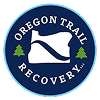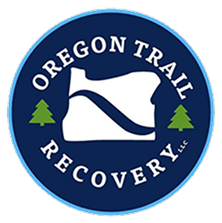Newsletter #46 - What is Addiction Denial?


Addiction denial is a common barrier to ecovery. It’s a defense mechanism that prevents people from acknowledging the severity of their substance use, making it difficult to seek help and make progress. By understanding and addressing denial, you can take a crucial step towards lasting sobriety. Let’s delve into what addiction denial is, how it shows up, and how to overcome it.
Understanding Addiction Denial
Denial in addiction is a defense mechanism that prevents individuals from acknowledging the severity of their substance use. It’s a way of protecting oneself from the pain and reality of addiction, but it also hinders the ability to seek help and begin the recovery process.
How Denial Manifests
Denial can take many forms, including:
- Minimization: Downplaying the amount of substance use or its impact on one’s life.
- Rationalization: Creating excuses or justifications for substance use, such as stress or social situations.
- Blaming: Shifting responsibility for substance use onto others or external circumstances.
- Comparison: Comparing oneself to others who are perceived to have worse problems, to make one’s own addiction seem less severe.
Personal Story
Consider Emily’s experience. For years, Emily minimized her drinking, telling herself it was just a way to unwind after work. She rationalized her behavior by blaming her stressful job and comparing herself to heavier drinkers. It wasn’t until Emily faced a major health scare that she realized the extent of her denial. With the support of her family and a therapist, Emily began to confront her denial and take steps towards recovery.
Overcoming Denial
Recognizing and overcoming denial is a critical part of recovery. Here are some steps to help:
- Self-Reflection: Take an honest look at your substance use and its impact on your life. Reflect on times when it has caused problems or concerns.
- Seek Feedback: Listen to the concerns of trusted friends and family members. Their observations can provide valuable insights that you might be overlooking.
- Educate Yourself: Learn about addiction and its effects on the brain and behavior. Understanding the science behind addiction can help you see it as a medical condition rather than a personal failing.
- Therapy and Counseling: Working with a therapist can help you explore the underlying reasons for your denial and develop healthier coping mechanisms.
- Support Groups: Joining a support group can provide a safe space to share your experiences and hear from others who have faced similar challenges.
Practical Tips for Addressing Denial
- Keep a Journal: Document your substance use and its effects on your life. Writing down your thoughts and experiences can help you see patterns and recognize denial.
- Set Realistic Goals: Start with small, achievable goals to reduce or eliminate substance use. Celebrate your progress and use it as motivation to continue.
- Stay Open-Minded: Be willing to accept that you might need help and that it's okay to seek it.
Final Thoughts
Understanding and overcoming denial is a vital step in the recovery process. It allows you to face the reality of addiction and take the necessary steps toward healing. Remember, acknowledging the problem is the first step towards solving it. Embrace the journey, and know that you’re not alone.
Best,
Ben Randolph
503-901-1836






